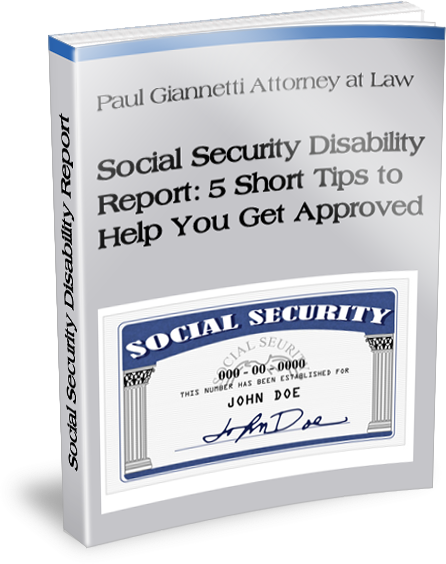One of the most common medical conditions listed on applications for Social Security Disability claims is depression and anxiety. These claims can be complicated and difficult because of the subjective nature of the diagnosis and/or alleged limitations.
As with all Social Security claims, the clarity and detail with which your doctor completes his medical records and reports is a determining factor for the Administrative Law Judge deciding your case. A simple diagnosis of depression and anxiety with corresponding symptoms will not be sufficient to win your case.
If your mental disorder fits into the listing of 12.06 then you should qualify for benefits. We have set forth the anxiety listing below. As you can see the listing are very specific in detail and it is extremely important that your physician comment on which of the criteria your condition meets.
Even if your depression and anxiety does not fit neatly into one of the listing, it is still possible for you to win your case. If you are able to demonstrate that your condition prevents you from performing any kind of regular full time work, you may still be approved for benefits.
If your mental condition is only part of your overall disability and if you have other conditions as well that keep you from working, the Law Judge should look at all of your disabling, physical and mental problems and make a determination as to whether or not you are able to perform full time employment reliably.
While depression and anxiety cases are difficult to win, your doctor’s cooperation will put you in to a much better position to receive a favorable decision. If you have questions regarding your Social Security matter, please feel free to contact our office.
12.06 Anxiety related disorders: In these disorders anxiety is either the predominant disturbance or it is experienced if the individual attempts to master symptoms; for example, confronting the dreaded object or situation in a phobic disorder or resisting the obsessions or compulsion in obsessive compulsive disorders.
The required level of severity for these disorders is met when the requirements in both A and B are satisfied or when the requirements is both A and C are satisfied.
- Medically documented findings of at least one of the following:
-
- Generalized persistent anxiety accompanied by three our of four of the following signs or symptoms:
- Motor tension; or
- Autonomic hyperactivity; or
- Apprehensive expectation; or
- Vigilance and scanning; or
-
- A persistent irrational fear of a specific object, activity, or situation which results in a compelling desire to avoid the dreaded object, activity, or situation; or
- Recurrent severe panic attacks manifested by a sudden unpredictable onset of intense apprehension, fear, terror and send of impending doom occurring on the average of at least once a week; or
-
- Recurrent obsessions or compulsions which are a source of marked distress; or
-
- Recurrent and intrusive recollections of a traumatic experience, which are a source of marked distress;
AND
- Resulting in at least two of the following:
-
- Marked restrictions of activities of daily living; or
-
- Marked difficulties in maintaining social functioning; or
-
- Marked difficulties in maintaining concentration, persistence, or pace; or
-
- Repeated episodes of decompensation, each of extended duration;
OR
- Resulting in complete inability to function independently outside the area of one’s home.
